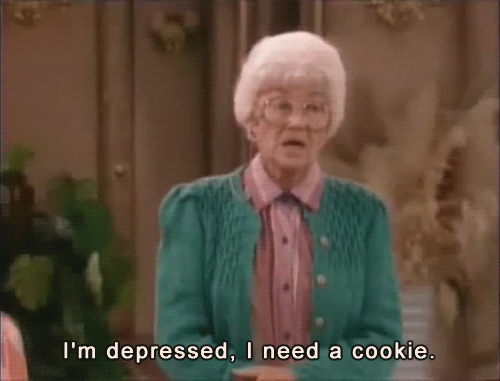It’s midnight and, like any other student minoring in procrastination, I’ve managed to focus all my energy up to now on seemingly unproductive outlets. That, my friends, is exactly how I ended up continuously scrolling down the same Facebook feed. You know what I’m talking about: when you open and scroll, exit out, realize your only other option at this point is to actually get something academic done, make a conscious decision to avoid THAT at all costs, and all of a sudden you’re halfway through some Tasty video you’ve seen five times? That’s where I’m at. Except the Tasty video was actually one of those “Things People With Anxiety Want You To Know” articles, and although I hadn’t actually read it five times, it sure felt like it.
I, unfortunately, know the difficulty that accompanies trying to explain mental illness to somebody on the outside. I’ve also felt the inevitable disappointment that hits the moment you look into a pair of eyes and know, know that they can’t possibly grasp what you’re trying to tell them. I, too, have perfected the laugh and wave of my hand as I brush off the conversation with an it’s-no-big-deal attitude, signaling to the other party that they can put a stop to those wheels I see spinning in their head.
Initially, I welcomed the idea that these articles and videos would somehow be able to find the words that I couldn’t. I thought, “This is great. People will read these articles and they’ll finally understand.”
Cringe. That’s what I do now every time I scroll past one of these posts, every time I think of somebody reading these articles or watching these videos. Here’s why:
- They portray us as fragile.
We need endless support and encouragement from all of our friends and family members and significant others, right? EYE ROLL. The last thing I want is people constantly walking on eggshells around me, throwing around patronizing words of plastic positivity. I don’t need my feelings bubble-wrapped. That’s precisely why I’m in therapy and continue to work on my disorder each and every day, so that I can function as close to normal as possible, not so everybody else can feel pressured to function at a level that doesn’t offend me. - They're pretty demanding.
“Just listen to us." "Just support us." "Just ask us if we’re okay." "Just be there.”
When did we become such a demanding population? I’m not going to give you a list of things you need to do. Being a good listener, being supportive, reading situations, being there when needed...those aren’t things I need as a person with anxiety or depression; those are things I need as a person in general. If somebody is truly your friend, family, significant other, they should be doing those things regardless. Not because you have anxiety, and not because you had to tell them to.
Additionally, all those requests just end up sounding like some abuser's displacement of blame with the oh-so-famous "Well, I wouldn't hit you if you just..." line. And that's not okay with me. - I’m not a child, and you’re not my parent.
They feel the need to justify actions that don’t need justification.
I am beyond tired of justifying perfectly normal personality traits that don’t actually hurt anybody. Maybe I’m quiet, maybe I don’t like to hang out in big groups, maybe I need to be alone sometimes. All of those things are okay. The moment somebody gets behind a keyboard and types, “Sometimes I need to be alone and that’s okay,” it automatically implies that there’s some other universe out there where needing to be alone is NOT okay. - They promote minor mental illness as a trend.
I’m just going to say it: anxiety and depression are everywhere nowadays. People read these articles or watch these videos, which are entirely oversimplified, and they think, “I like to be alone,” or “I get easily frustrated,” and all of a sudden we have another self-diagnosed psychological disorder warrior. Or, we have a bunch of people who think they know what they’re talking about when it comes to psychological disorders because they’ve read a few articles. In reality, it’s not as simple as these articles make it out to be, and this sense of false understanding often ends up undermining the actual disorder. - Each and every relationship with mental illness is personal.
I'm not a robot. Every article being the same doesn’t make sense to me. How can every person have the same advice, when every person is different? We all handle our disorders differently, and we all need and want different things. Even as I write this, I’m aware of the fact that it serves as a reflection of only myself, but that’s kind of the point. Those cookie-cutter “9 Things You Should Know When Dating Somebody With Depression” posts are not the blueprints on how to approach people with psychological disorders. My relationship with my disorders is a personal one, one that I don’t think could ever be explained in nine bullet points.




 They feel the need to justify actions that don’t need justification.
They feel the need to justify actions that don’t need justification.









































